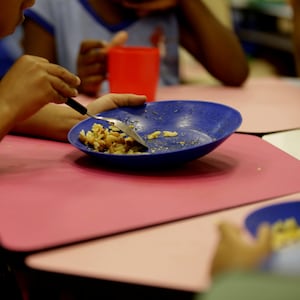World
New Zealand Ranks Poorly in Child Hunger Amid Climate Crisis

The effects of climate change on food security are increasingly alarming, with New Zealand recently identified as the third worst country regarding child hunger in its climate action plans. A report by World Vision highlights the urgent need for effective strategies to combat this pressing issue, particularly as children are disproportionately affected by the consequences of climate-related disruptions.
World Vision’s findings specifically address how climate change exacerbates food insecurity, impacting not only nutrition but also the overall health and development of children. According to the Global Hunger Index 2023, New Zealand’s policies are falling short in addressing these critical challenges. The report underscores that without immediate action, the situation will worsen, leaving vulnerable populations, especially children, at greater risk.
New Zealand’s Climate Action and Child Hunger
In examining New Zealand’s climate plans, World Vision reveals that the nation is lagging behind in initiatives aimed at reducing child hunger. The report indicates that while the country has made commitments to reduce carbon emissions, these efforts do not sufficiently address the intersecting issues of food security and child welfare. Olivia Yates, a representative from World Vision, emphasized the need for a more integrated approach that specifically targets child nutrition as part of climate resilience strategies.
The report highlights that children in New Zealand and around the world are facing increasing challenges due to climate-related factors such as extreme weather events and changing agricultural conditions. These challenges not only threaten food production but also hinder access to nutritious food for many families. The implications of these findings are profound, as they point to a growing crisis that requires urgent and comprehensive policy responses.
The Call for Action
World Vision’s report serves as a wake-up call for policymakers and stakeholders in New Zealand. The organization urges the government to prioritize child hunger in its climate action framework, emphasizing that the health and development of future generations depend on immediate and coordinated efforts.
In response to these findings, community leaders and advocates are rallying for increased investment in sustainable agriculture and education programs that support food security. By focusing on resilience-building initiatives, New Zealand can help mitigate the impacts of climate change on its most vulnerable populations.
The situation is not just a local concern; it reflects a broader global challenge. As countries worldwide grapple with the realities of climate change, the need for effective policies that safeguard children’s nutrition has never been more critical. New Zealand has an opportunity to lead the way by addressing these issues head-on, setting an example for others to follow.
In conclusion, the findings from World Vision highlight a critical intersection of climate action and child welfare. The urgent call for New Zealand to improve its policies on child hunger is not just about meeting international obligations; it is about ensuring a sustainable and secure future for all children. As the impacts of climate change continue to unfold, the need for decisive action has never been clearer.
-

 World4 months ago
World4 months agoTest Your Knowledge: Take the Herald’s Afternoon Quiz Today
-

 Sports4 months ago
Sports4 months agoPM Faces Backlash from Fans During Netball Trophy Ceremony
-

 Lifestyle4 months ago
Lifestyle4 months agoDunedin Designers Win Top Award at Hokonui Fashion Event
-

 Sports4 months ago
Sports4 months agoLiam Lawson Launches New Era for Racing Bulls with Strong Start
-

 Lifestyle4 months ago
Lifestyle4 months agoDisney Fan Reveals Dress Code Tips for Park Visitors
-

 World4 months ago
World4 months agoCoalition Forms to Preserve Māori Wards in Hawke’s Bay
-

 Health4 months ago
Health4 months agoWalking Faster Offers Major Health Benefits for Older Adults
-

 Entertainment4 months ago
Entertainment4 months agoExperience the Excitement of ‘Chief of War’ in Oʻahu
-

 Politics4 months ago
Politics4 months agoScots Rally with Humor and Music to Protest Trump’s Visit
-

 Top Stories4 months ago
Top Stories4 months agoUK and India Finalize Trade Deal to Boost Economic Ties
-

 World4 months ago
World4 months agoHuntly Begins Water Pipe Flushing to Resolve Brown Water Issue
-

 Science4 months ago
Science4 months agoNew Interactive Map Reveals Wairarapa Valley’s Geological Secrets









